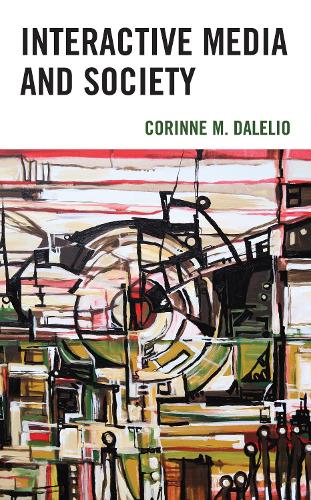
Interactive Media and Society
(Hardback)
Publishing Details
Interactive Media and Society
By (Author) Corinne M. Dalelio
Bloomsbury Publishing PLC
Lexington Books
21st June 2022
United States
Classifications
Professional and Scholarly
Non Fiction
Communication studies
Sociology
302.231
Winner of Outstanding Academic Title 2023
Physical Properties
Hardback
312
Width 159mm, Height 228mm, Spine 25mm
667g
Description
In this book, Corinne M. Dalelio analyzes how the rise of interactive media over the last few decades has had enormous impacts on every aspect of American societythe ways in which we organize, produce, consume, engage, entertain, and inform. Yet the vestiges of the one-way, broadcast model of the media industries continue to be primary, prominent, and persuasive in our culture, Dalelio argues. This book offers clarity and insight into the current media landscape by first outlining what it is that makes interactive media distinct from that which came before, and then identifying the harmonies and tensions between media systemsnew and oldas they operate in various communicative contexts still in flux. These contexts include art, journalism, activism, marketing, and even the public sphere. Dalelio encourages readers to hone their critical digital literacy skills by supplying them with analytical concepts and theoretical principles that can be applied, regardless of how these tools change or evolve, ultimately enabling more thoughtful and meaningful interactive media usage and consumption. Elucidated throughout with interesting and relevant narrative examples, this book offers an engaging and straightforward presentation of the current scholarly understanding of these tools along with practical tips for navigating the challenges of our complex media ecosystem. Scholars of media studies, communication, sociology, and American studies will find this book particularly useful.
Reviews
Corinne Dalelio, in her persuasive book Interactive Media and Society, is to be lauded for her courage to wrestle with such an impactful and monumental topic in this current age. Her work comes at a critical time as scholars and citizens become more cognizant of the attention-capturing technology that now dominates our lives [...] Dalelio's work is an important and effective look at the continuation of the interactive media information revolution still in process [...] Dalelio should be commended for her ability to craft such an important and comprehensive look at interactive media in today's society with the finesse of a storyteller and the depth of a seasoned scholarly author.
In this book, Dalelio explains the phenomenon of interactive media and its pervasiveness in people's lives. The author argues that all of today's interactive media are digital, networked, and databased, making them potentially powerful whether for advancing democracy, collaboration, activism, marketing, or community building. At the same time, this media environment gives rise to new gatekeepers of information and emerging concerns about privacy and surveillance. The author poses thought-provoking questions but does not provide definitive answers. If this book is adopted as a textbook for an undergraduate class, it can certainly prompt rich discussions and debates. Each chapter is compelling enough to cause readers to do further research on the topic at hand. Throughout the book, readers are introduced to pertinent concepts that are clearly explained with examples aptly provided.... Highly recommended.
In this book, Dalelio reminds us of the key importance of interactivity as a defining characteristic of media that span generations and span the globe. She convincingly suggests that the human-computer relationship is a co-authored one, with the latter increasingly responsive to the input of the former. Interactive media can be found in familiar and unfamiliar places, from mobile phones and videogame consoles to eyeglasses and kitchen countertops. This volume introduces us to a shared understanding of interactivity. Through a combination of narrative and social sciences, readers are invited to both celebrate and question how our technologies impact the form and function of our interactions with each other.
Author Bio
Corinne M. Dalelio is assistant professor in the Department of Communication, Media, and Culture at Coastal Carolina University.
